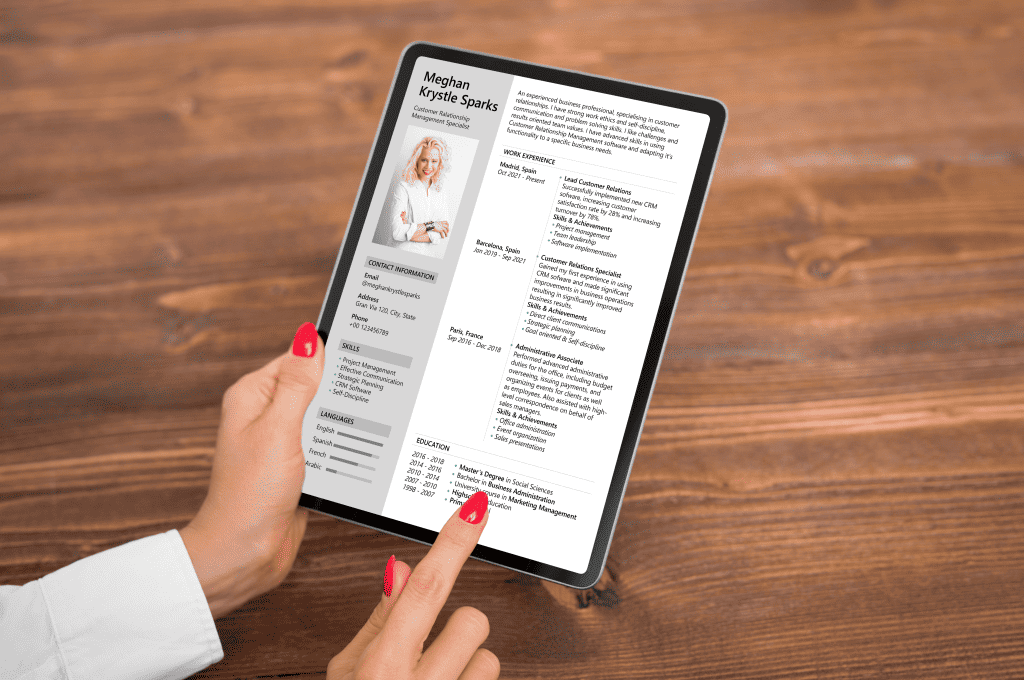In today’s competitive job market, creating a positive impression on different types of candidates has become crucial for organizations seeking to attract and retain top talent. Candidates have high expectations when it comes to their experience during the recruitment process, and companies that prioritize candidate satisfaction often gain a competitive edge. One powerful tool that has revolutionized the hiring landscape is recruitment automation.
Recruitment automation tools are designed to streamline and optimize various aspects of the recruitment process, from initial application submission to final selection. These tools leverage technologies such as artificial intelligence (AI), machine learning, and data analytics to automate repetitive tasks, enhance efficiency, and improve the overall candidate experience.
The significance of recruitment automation tools lies in their ability to transform traditional, time-consuming recruitment processes into seamless and engaging experiences for candidates. By leveraging automation, organizations can provide personalized interactions, timely feedback, and transparent communication, leading to a positive impression and a sense of value for candidates.

In this article, we will explore how recruitment automation tools enhance candidate experience and contribute to creating a positive impression. We will delve into the benefits of using these tools, examine the specific ways in which they improve candidate experience, and highlight best practices for their implementation. Additionally, we will showcase real-world case studies of companies that have successfully leveraged recruitment automation tools to enhance their candidate experience.
By understanding the impact of recruitment automation tools on candidate experience, organizations can gain valuable insights into how to attract and engage top talent, strengthen their employer brand, and ultimately build a highly skilled and satisfied workforce. Let’s explore the transformative power of recruitment automation and its role in shaping a positive impression during the recruitment process.
Want to know what is candidate’s experience? Then, get in touch with Hirebee and we can help you leverage the right tools to tell you how to improve the candidate experience.
Table of Contents
ToggleUnderstanding Recruitment Automation Tools
Definition and purpose of recruitment automation tools
Recruitment automation tools refer to software applications and platforms that streamline and automate various aspects of the recruitment process. These tools are designed to simplify and optimize time-consuming tasks involved in sourcing, screening, and evaluating candidates. The primary purpose of recruitment automation tools is to enhance efficiency, improve candidate experience, and ultimately make the hiring process more effective.
Examples of popular recruitment automation tools
- Applicant Tracking Systems (ATS): ATS software automates the entire hiring process, from receiving applications to screening resumes, scheduling interviews, and managing candidate data. It helps recruiters track and manage candidate pipelines, streamline workflows, and collaborate with hiring teams.
- Resume Parsing Tools: These tools extract relevant information from resumes and automatically populate candidate profiles in the ATS. They eliminate the need for manual data entry, save time, and ensure accurate capturing of candidate details.
- Video Interviewing Platforms: Video interviewing tools enable remote and asynchronous interviews. They allow recruiters to pre-record interview questions or conduct live video interviews, making it easier to assess candidates’ communication skills, presence, and cultural fit.
- Skill Assessment Platforms: These tools provide pre-employment tests and assessments to evaluate candidates’ skills and knowledge. They offer a range of assessments, including coding tests, language proficiency tests, and cognitive abilities tests, to objectively measure candidates’ capabilities.
- Chatbots and AI Assistants: Chatbots are AI-powered virtual assistants that engage with candidates, answer frequently asked questions, and provide real-time support. They offer personalized interactions, help candidates navigate the application process, and assist with basic queries.
Benefits of using automation tools in the recruitment process
- Time and cost savings: Automation tools streamline repetitive tasks, reduce manual effort, and accelerate the hiring process. They eliminate administrative burdens, allowing recruiters to focus on strategic activities and make efficient use of their time and resources.
- Improved candidate experience: Automation tools provide candidates with a seamless and user-friendly application experience. They offer quick response times, personalized communication, and self-service options, leading to increased satisfaction and engagement.
- Enhanced data management and analytics: Automation tools capture and centralize candidate data, providing recruiters with a comprehensive view of applicants. This data can be analyzed to identify trends, track metrics, and make data-driven decisions, leading to improved hiring outcomes.
- Consistency and fairness: Automation tools apply standardized evaluation criteria and reduce the potential for human bias in candidate selection. They ensure fairness and equal opportunities for all applicants, promoting diversity and inclusivity in the hiring process.
- Scalability and collaboration: Automation tools facilitate collaboration among hiring teams by providing a centralized platform for communication, feedback, and evaluation. They enable efficient collaboration even when hiring for multiple positions or across different locations.
Overall, recruitment automation tools offer numerous advantages for both recruiters and candidates. They streamline processes, enhance candidate experience, and contribute to more effective and efficient hiring outcomes.
Enhancing Candidate Experience through Automation Tools

Recruitment automation tools play a crucial role in enhancing the overall candidate experience. By streamlining various aspects of the recruitment process and leveraging advanced technologies, these tools offer several benefits that create a positive impression on candidates. This section will delve into different ways automation tools enhance candidate experience.
Streamlining the application process
- Automated resume screening and parsing: Recruitment automation tools utilize machine learning algorithms to automatically screen and parse resumes. This speeds up the initial screening process and ensures that candidates with relevant qualifications are considered promptly.
- Online application portals and self-scheduling interviews: Automation tools often provide online portals where candidates can submit their applications and schedule interviews at their convenience. This eliminates the need for back-and-forth communication and allows candidates to have more control over the process.
- Mobile-friendly interfaces for convenience: Many automation tools offer mobile-friendly interfaces, allowing candidates to apply and engage with the recruitment process using their smartphones or tablets. This flexibility accommodates candidates who prefer mobile devices and contributes to a positive user experience.
Personalized communication and engagement
- Automated email responses and updates: Automation tools enable the automated sending of personalized emails to candidates at different stages of the recruitment process. These emails can include acknowledgments, interview invitations, or status updates, providing candidates with timely and informative communication.
- Customized messaging and targeted communication: Automation tools allow recruiters to segment candidates based on specific criteria and send targeted messages accordingly. This personalization helps candidates feel valued and engaged throughout the process, enhancing their overall experience.
- Chatbots for instant responses and FAQs: Many automation tools incorporate chatbot functionalities, providing candidates with instant responses to their queries. Chatbots can answer frequently asked questions, guide candidates through the application process, and provide timely assistance, improving engagement and reducing waiting times.
Efficient candidate evaluation and assessment
- Automated skills assessments and pre-employment tests: Automation tools enable the administration and scoring of skills assessments and pre-employment tests in a standardized and efficient manner. Candidates can complete these assessments online, and their results can be automatically evaluated, saving time and effort for both candidates and recruiters.
- Video interviewing and recording capabilities: With automation tools, recruiters can conduct video interviews and record them for later review. This eliminates the need for scheduling conflicts and allows hiring teams to assess candidates at their convenience, leading to faster decision-making and improved candidate experience.
- AI-driven candidate ranking and shortlisting: Automation tools leverage artificial intelligence (AI) to analyze candidate data and generate rankings or shortlists based on predefined criteria. This AI-driven approach reduces manual bias and ensures that candidates are evaluated fairly, contributing to a more objective and positive candidate experience.
Transparent and timely feedback
- Automated feedback notifications and updates: Automation tools can automatically send feedback notifications to candidates, keeping them informed about the progress of their application or interview outcomes. Timely feedback helps candidates understand their standing in the process and fosters transparency, which is essential for a positive impression.
- Real-time status tracking of application progress: Candidates can track the status of their application in real-time through the automation tool’s applicant tracking system. This feature eliminates uncertainty and allows candidates to stay informed about the progress of their application, reducing anxiety and improving overall experience.
- Constructive feedback for rejected candidates: Automation tools facilitate the provision of constructive feedback to candidates who are not selected for a position. This feedback can help candidates understand areas for improvement and enhance their future job search efforts, leaving a positive and lasting impression of the organization.
By leveraging recruitment automation tools, companies can significantly enhance the candidate experience. Streamlining the application process, providing personalized communication, enabling efficient evaluation and assessment, and offering transparent feedback all contribute to creating a positive impression on candidates. These enhanced experiences not only benefit candidates but also improve.
Creating a Positive Candidate Experience

Consistent employer branding and messaging
During the recruitment process, it is essential to maintain consistent employer branding and messaging to create a positive impression on candidates. Automation tools can play a crucial role in ensuring this consistency. By aligning these tools with the company’s branding guidelines, recruiters can provide a cohesive and engaging candidate experience. Clear and consistent messaging across all touchpoints, such as application portals, emails, and chat interactions, helps candidates understand and connect with the organization’s values and culture.
User-friendly and intuitive interfaces
Automation tools should prioritize user-friendliness and intuitive interfaces to enhance the candidate experience. The application portals and platforms should have intuitive navigation, allowing candidates to easily find the information they need and complete the necessary steps. Clear instructions and guidance should be provided at each stage of the process to eliminate confusion and increase top candidate satisfaction. Additionally, optimizing these tools for mobile devices ensures accessibility and convenience for candidates who prefer to engage on smartphones or tablets.
Ensuring fairness and minimizing bias
Automation tools can contribute to a fair and unbiased recruitment process by eliminating human biases. To create a positive candidate experience, it is crucial to design algorithms and evaluation criteria that are free from discriminatory biases. Regular auditing and monitoring of these tools can help identify and address any potential biases. Furthermore, organizations should strive to provide equal opportunities for all candidates, regardless of their background, ensuring fairness throughout the entire recruitment process.
Overall, by focusing on consistent employer branding, user-friendly interfaces, and fairness, organizations can create a positive candidate experience using recruitment automation tools. These tools not only streamline the process but also enhance engagement, increase efficiency, and foster a sense of transparency and trust between candidates and employers. By implementing these strategies, organizations can attract top talent and establish a reputation as an employer of choice.
Case Studies: Successful Implementation of Automation Tools

Company X: Streamlining recruitment with automation
- Company X, a leading technology firm, implemented recruitment automation tools to enhance their candidate experience.
- By utilizing automated resume screening and parsing, they significantly reduced the time spent on manual resume review.
- The implementation of online application portals and self-scheduling interviews provided candidates with more control and convenience in the application process.
- Mobile-friendly interfaces ensured that candidates could easily access and navigate the application system from their smartphones or tablets.
- The streamlined process resulted in faster response times and improved overall efficiency.
- Candidate feedback indicated higher satisfaction levels due to the simplified and user-friendly experience.
- Hiring managers also reported positive outcomes, as they received a higher volume of qualified candidates for consideration.
Company Y: Leveraging automation for personalized engagement
- Company Y, a global retail company, focused on personalized communication and engagement through automation tools.
- Automated email responses and updates provided candidates with timely feedback on their application status.
- Customized messaging and targeted communication ensured that candidates received relevant information based on their specific job interests and qualifications.
- Chatbots were implemented to provide instant responses to frequently asked questions, creating a seamless and efficient candidate experience.
- The personalized approach led to increased candidate satisfaction and engagement throughout the recruitment process.
- Candidates appreciated the prompt and informative communication, which reflected the company’s commitment to candidate care.
- The utilization of automation tools resulted in higher candidate retention rates and improved employer branding.
Both Company X and Company Y exemplify the positive impact of recruitment automation tools on candidate experience. By leveraging automation, these organizations streamlined their recruitment processes, provided personalized engagement, and ensured transparency and fairness for candidates. The successful implementation of these tools resulted in higher satisfaction levels among candidates, improved efficiency, and enhanced employer branding. These case studies highlight the importance of adopting automation tools to create a positive impression and elevate the overall recruitment experience for candidates.
Conclusion
Creating a positive impression during the recruitment process is crucial for attracting top talent and building a strong employer brand. Recruitment automation tools play a significant role in enhancing candidate experience by streamlining processes, personalizing communication, enabling efficient evaluation, and providing transparent feedback. These tools not only benefit the organization by saving time and resources but also contribute to a seamless and engaging experience for candidates.
Recruitment automation tools offer numerous advantages, such as automating resume screening, facilitating online applications and self-scheduling interviews, and providing mobile-friendly interfaces for convenience. They also enable personalized communication through automated email responses, customized messaging, and chatbots that offer instant support and answer frequently asked questions. Furthermore, these tools enhance candidate evaluation and assessment with features like automated skills assessments, video interviewing capabilities, and AI-driven candidate ranking.
To create a positive candidate experience, organizations should ensure consistency in employer branding and messaging, aligning automation tools with company values and culture. User-friendly interfaces with intuitive navigation and clear instructions are essential to facilitate a seamless candidate journey. Moreover, organizations must prioritize fairness and minimize bias by designing unbiased algorithms, regularly auditing automation tools, and providing equal opportunities for all candidates.
Several case studies have demonstrated the successful implementation of automation tools in enhancing candidate experience. Companies like X and Y have achieved significant improvements in candidate satisfaction, engagement levels, and feedback from both candidates and hiring managers. These success stories highlight the tangible benefits of incorporating automation tools into the recruitment process.
The primary aim of this article was to tell you why is candidate experience important and how you can improve it. If you need assistance with it, then you can get in touch with Hirebee and we’ll be more than happy to help you.
FAQs
What are recruitment automation tools?
Recruitment automation tools are software applications or platforms designed to automate various aspects of the recruitment process. They help streamline tasks such as resume screening, candidate evaluation, interview scheduling, communication, and feedback management.
How do recruitment automation tools enhance candidate experience?
Recruitment automation tools enhance candidate experience by simplifying and expediting the application process, providing personalized communication and engagement, facilitating efficient evaluation and assessment, and offering transparent and timely feedback. These tools create a more seamless and engaging experience for candidates, ensuring they feel valued throughout the recruitment journey.
What are some examples of recruitment automation tools?
Examples of popular recruitment automation tools include applicant tracking systems (ATS), video interviewing platforms, resume parsing software, skills assessment platforms, automated email and messaging systems, and chatbots. These tools help automate different stages of the recruitment process to improve efficiency and candidate experience.
How do recruitment automation tools streamline the application process?
Recruitment automation tools streamline the application process by automating resume screening and parsing, providing online application portals for easy submission, enabling self-scheduling of interviews, and offering mobile-friendly interfaces for convenience. These features save time for both candidates and recruiters, making the application process more efficient.
How do recruitment automation tools personalize communication and engagement?
Recruitment automation tools personalize communication and engagement by providing automated email responses and updates, customizing messaging based on candidate profiles and preferences, and using chatbots to offer instant responses to candidate queries. These tools help create a more personalized and interactive experience for candidates, keeping them informed and engaged throughout the recruitment process.









